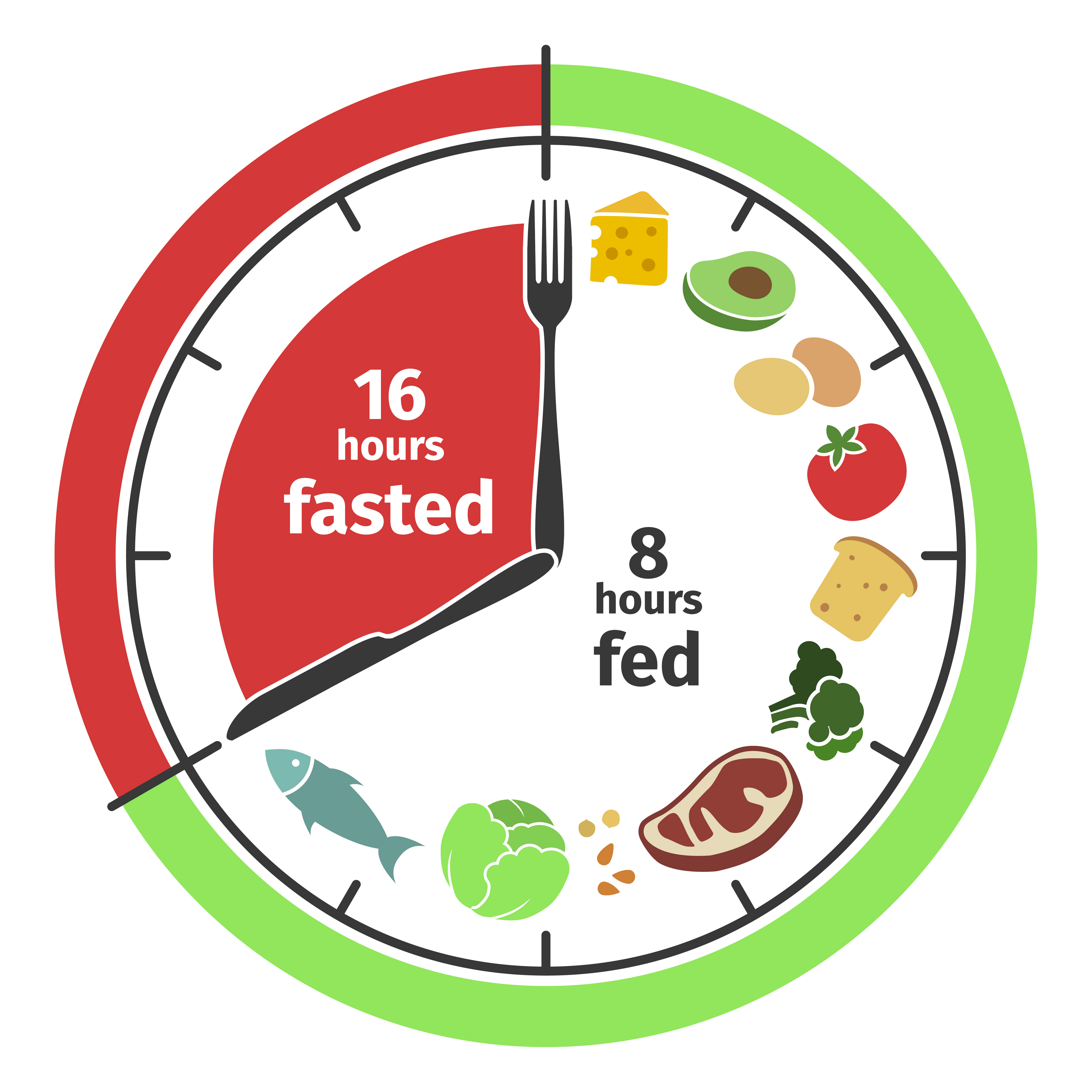What is intermittent fasting and what are its benefits?
The principle of intermittent fasting
One of the main principles of intermittent fasting is the "window" diet, where eating periods and fasting periods are repeated daily. For example, the popular 16/8 method requires you to fast for 16 hours and allow you to eat during the remaining 8 hours. Other methods, such as the 5:2 diet, require you to severely restrict your calorie intake two days a week and eat normally the other five days.
It's important to emphasize that while intermittent fasting can help you lose weight and improve some health indicators, it's important to choose healthy foods during your eating windows. A balanced diet, rich in nutrients, helps ensure that the body receives the right amount of vitamins, minerals and other important substances.
Also, it's important to consult with a healthcare professional before starting any nutritional strategy, especially if you have health issues. Intermittent fasting may not be suitable for people with certain medical conditions, such as diabetes, or those taking medications that require regular food intake.
Ultimately, it's important to emphasize that while intermittent fasting can be an effective weight loss and health improvement tool for some people, it's not a one-size-fits-all strategy. An individualized approach based on personal health conditions, dietary habits and lifestyle is the key to long-term success.

Intermittent fasting and its effects on health, weight loss and metabolism
Intermittent fasting, an eating pattern that alternates between periods of eating and fasting, has gained popularity as a potential way to improve health, manage weight, and optimize metabolism. Intermittent fasting is based not only on weight control, but also on the search for potential health benefits related to longevity, reducing inflammation and improving heart health. Research has shown that intermittent fasting can have a variety of positive effects, including several important metabolic changes such as increased insulin sensitivity, reduced oxidative stress, improved blood lipid quality, and decreased inflammatory markers.
Health benefits
- Promoting longevity: Research shows that intermittent fasting can increase lifespan.
- Reducing inflammation: Intermittent fasting reduces inflammatory markers, contributing to a reduction in the body's overall inflammatory state.
- Improving heart health: Reduces risk factors for heart disease, including high blood pressure, cholesterol and triglyceride levels.
Weight loss and body shape changes
- Creating a caloric deficit: Reduced total caloric intake promotes weight loss.
- Promoting fat burning: The body uses stored fat reserves as a source of energy, resulting in improved body shape.
Optimization of metabolism
- Increased insulin sensitivity: Lower fasting insulin levels help reduce insulin resistance, which is important for preventing type 2 diabetes.
- Transition to fat as an energy source: Promotes fatty acid oxidation, improving metabolic efficiency.
Individual response and health care
- Variation in individual response: The response to intermittent fasting may vary between individuals.
- Consultation with a healthcare professional: Before starting a fasting regimen, especially if you have medical conditions or are taking medication, it is necessary to consult a specialist.
Intermittent fasting is an interesting and potentially beneficial dietary pattern, but its effects may vary between individuals. It is important to consult with your health care professional before starting any new nutrition plan to ensure it meets your individual health needs and goals.
How to practice intermittent fasting safely?
Practicing intermittent fasting safely requires caution, awareness, and sometimes medical supervision, especially if the person has health problems or is taking medication. It is important to recognize that while this nutritional strategy may offer a variety of health benefits, it is not one-size-fits-all and may require individualization. To ensure that intermittent fasting is practiced safely and effectively, it is important to consider several key aspects:
- Individual assessment and consultation of healthcare professionals. It is important to consult a doctor or nutritionist before starting any fasting regimen, especially if you are pregnant, breastfeeding, have a chronic illness, or are taking medication. This will help you determine if intermittent fasting is safe and appropriate for your health.
- Slow and steady starting pace. Beginners are recommended to start with shorter periods of fasting, gradually increasing them so that the body can adapt to the new rhythm of eating. For example, one can start with a 12-hour fast, gradually increasing the period to 16 hours or more, depending on the state of health.
- Balanced nutrition in eating windows. It is important that a nutritious and balanced diet is consumed during eating periods, ensuring that the body receives the necessary nutrients, vitamins and minerals. Priority should be given to healthy foods such as fruits, vegetables, lean protein sources, healthy fats.
- Listening to your body. It is very important to listen to your body's signals and adjust your fasting practices accordingly. If you experience severe fatigue, headaches, lack of concentration, or other unwanted symptoms, you may need to adjust the duration, frequency, or even stop this practice temporarily.
- Hydration support. Hydration is vital at all times, especially during fasting periods. You should drink enough water or other low-calorie drinks, such as unsweetened tea and coffee, to prevent dehydration.
- Combining physical activity and rest. Although moderate-intensity physical activity can be beneficial during both fasting and eating periods, it is important not to overload the body with intense training regimens, especially in the early stages of fasting. Sufficient rest and good quality sleep should also be ensured.
With these considerations in mind and regular communication with healthcare professionals, intermittent fasting can be safely incorporated into a healthy lifestyle with potential health benefits and weight management goals.

Information sources
- The New England Journal of Medicine
- Journal of Nutrition
- American Journal of Clinical Nutrition
# protarpinis badavimas